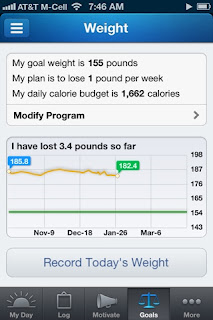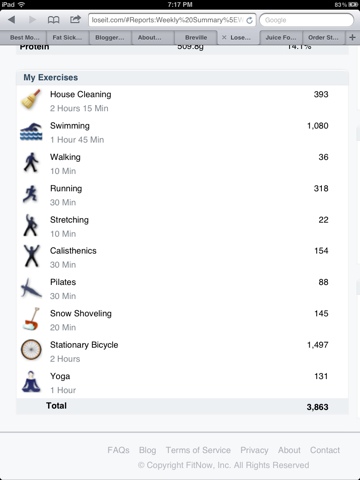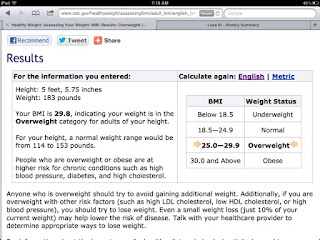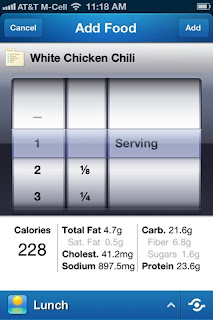I think the producers must be reading my blog, because all of my complaints about the show from my last post seem to have been addressed. There was less manufactured drama and more real interaction with the contestants. The segments were also a lot more educational.
The contestants competed in a quiz about childhood obesity. Some of the facts were pretty staggering. I knew that more than 30 percent of kids are now obese, but I was shocked to hear that 60 percent of overweight kids already have a risk factor for heart disease, and that 75% of their parents thought they were normal weight or even underweight. The contestants must of been surprised too, because they didn't do that well on the quiz.
The penalty for the Blue Team for losing the quiz was a powerful piece of social commentary: They were locked in "The Kids' Room" for 4.5 hours (which we just learned is the average amount of time kids spend watching TV). The room was filled with video games, a big television, and a ridiculous pile of salty snacks, sodas, donuts, pizza, and other "goodies." The contestants were not allowed to work out during this time, so no pushups in front of the television or marching in place. They just had to sit. It looked incredibly boring. The contestants got the junk out of the way and one of them ruined all the food by pouring orange juice over it, and then they just sat and slept. They came out of the room looking lethargic and depressed. They got to work out with Bob afterward, but they didn't feel very good after spending so much time sitting and being bored. And lest we think that this is an unrealistic scenario, we learn that Bingo often spends 9 hours on the weekend playing his favorite video game, and about 4 hours on school nights, snacking while playing.
I'm not sure what the alternatives are, and The Biggest Loser doesn't tell us. Obviously, sports and other structured activities are great for kids who have the ability and the resources do them. This can't be the answer for everyone, though, because a lot of parents don't have the resources for that or the time to shuttle kids around to them, and not every kid has the interest or ability. I liked that The Biggest Loser gave each kid bikes in the first episode, so that they could ride around for transportation and fun. Unfortunately, a lot of neighborhoods aren't safe places to ride. Drivers aren't friendly to bikes and there aren't many bike lanes where I live.
The big problem, one that a show like The Biggest Loser can point to but can't really solve, is that we don't have a society that is set up well to take care of kids (or adults for that matter). Most adults are having to work more hours to make ends meet. Kids are often, by financial necessity, coming home to an empty house and left to their own devices. Most parents don't feel that it's safe for their kids to travel around unsupervised, so that means they're usually stuck at home alone. There may or may not be other kids for them to play with, which is what most kids would want to do with free time. So when they're not in sports or activities or school, they're in front of some kind of screen. Kids in cities might have resources like the Boys' and Girls' Clubs or the YMCA, but kids in suburbs or exurbs are mostly on their own. I'm not a parent, so I'd like to hear what parents thought of this segment.
The other segment with kids was the "Dump the Junk" pantry cleanout by the nutritionist. I was happy to see sugary beverages, including
Coca-Cola, called out for their part in the problem. But again, no clear alternative was presented. Sure, the nutritionist said, "We're going to replace those with lean proteins, whole grains, fruits and vegetables." Hooray. But when
Froot Loops claim to be rich in whole grains and
fruit gummy snacks claim to be made with real fruit, it's possible that parents might replace honest junk with other junk that claims to be good food. Real whole grains take a long time to cook, and parents often don't want to spend a lot of time making healthy meals that kids will refuse to eat. Maybe there will be a Biggest Loser Cookbook for Kids. There are already
Biggest Loser carrots. The good news is that a show like this has a lot of weight to throw around if NBC has real interest in making a difference in kids' lives. They could, for example, refuse to sell junk food ads and fast food ads during kids' shows. And they could help fund after-school activities for kids.
Even with the adults, the segments were more substantial than they were in the last two weeks. Jillian is working out with her two contestants and one of the Red Team members decides to work out with them. She sticks around when Jillian starts talking about emotional issues and we find out that a big part of her problem is that she has guilt and mixed feelings about her father, who had a lot of big mood swings, and when he died early, it felt like more of a relief than a tragedy. Jillian asked if he was an alcoholic, and he was. This kind of story, and not the huge dramatic car accidents and childhood abuse, is probably the source of most contestants' food issues. It was nice to see it calmly and reasonably discussed. We also see Pam working on her issues around inadequacy and self-sabotage. All of this is presented in a way that is interesting but not sensationalized. Here Jillian's yelling seems to serve a real purpose, breaking through Pam's denial -- that's what happens when we are given the whole story and not just the screaming. It wasn't the quantity of the yelling in the premiere that bothered me as much as its apparent pointlessness -- Jillian seemed to be attacking someone for no reason. Again, I think it was an editing problem, and it was solved in this episode.
The challenge this time was a fun and somewhat disgusting slog through a pit of liquid bubble gum, all for a year's supply of groceries for the contestants on the winning team. We saw some real athleticism in a few of the women, and the bigger guys definitely were at a disadvantage. Just after three weeks, some of the contestants are becoming real powerhouses in the challenges. This, to me, is the most impressive aspect of the show, and the reason that I would jump at the chance to go to the
Biggest Loser Resort if anyone was ever willing to pay my way. I'd love to see what I could do with a few weeks of intensive training like that.
Finally, I really like how they changed the elimination process. Each player votes alone, and it doesn't look like players have a chance to plead their case to the team. In the past, we really saw weaker players enabled by their team members' guilt, and I thought a few of those players took advantage of it. The player eliminated this time was not the one I would have chosen, but that player did seem to feel ready to take on weight loss solo.















